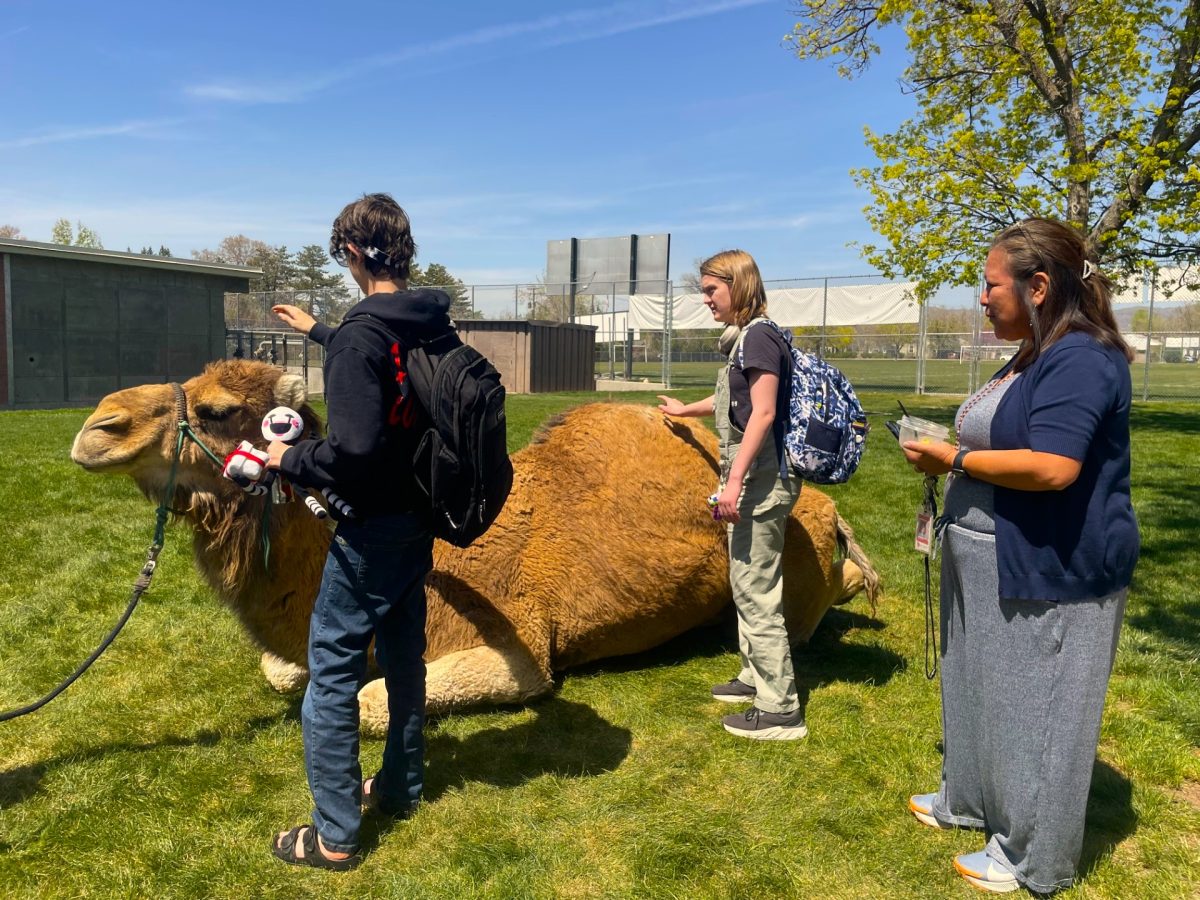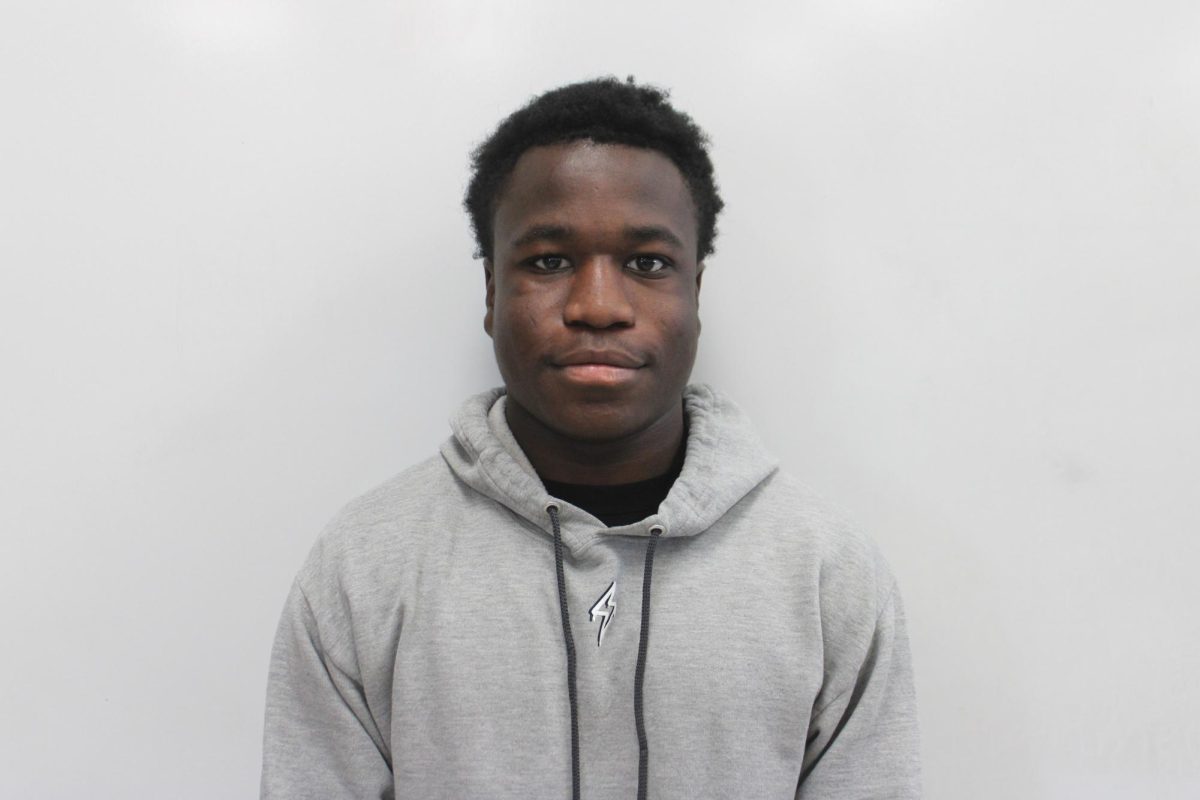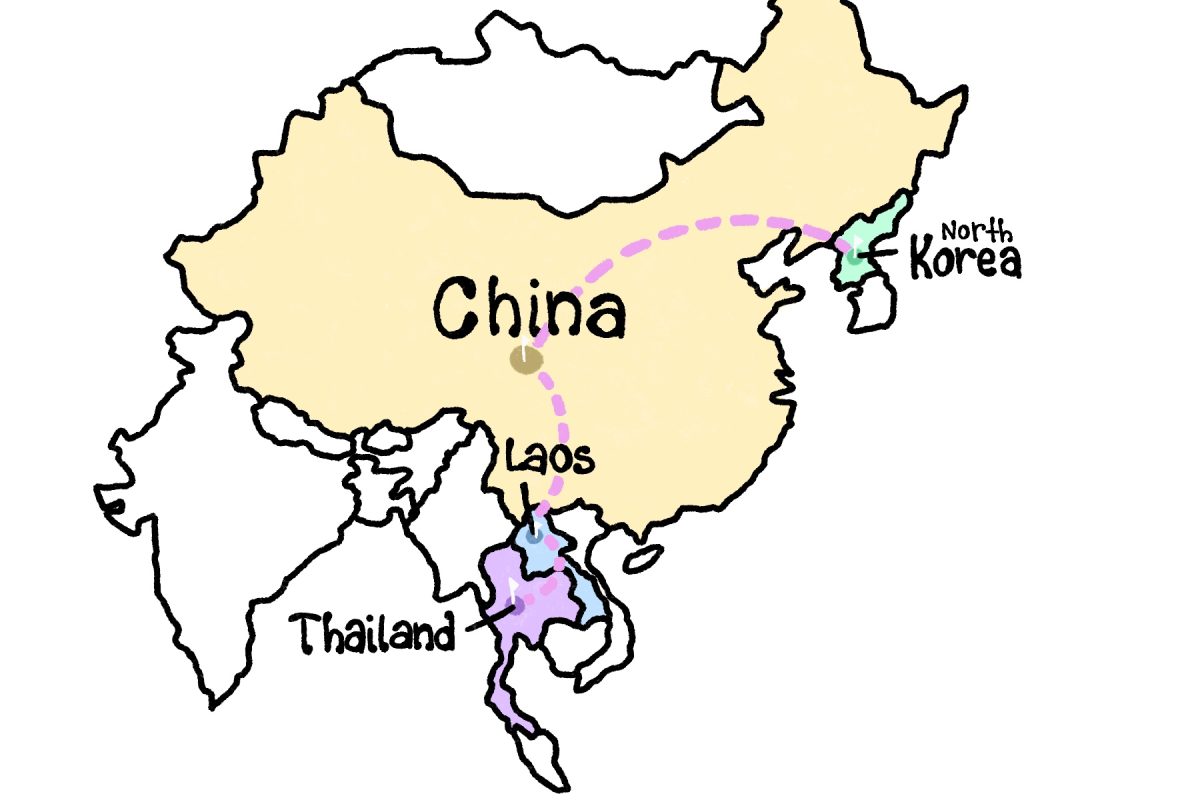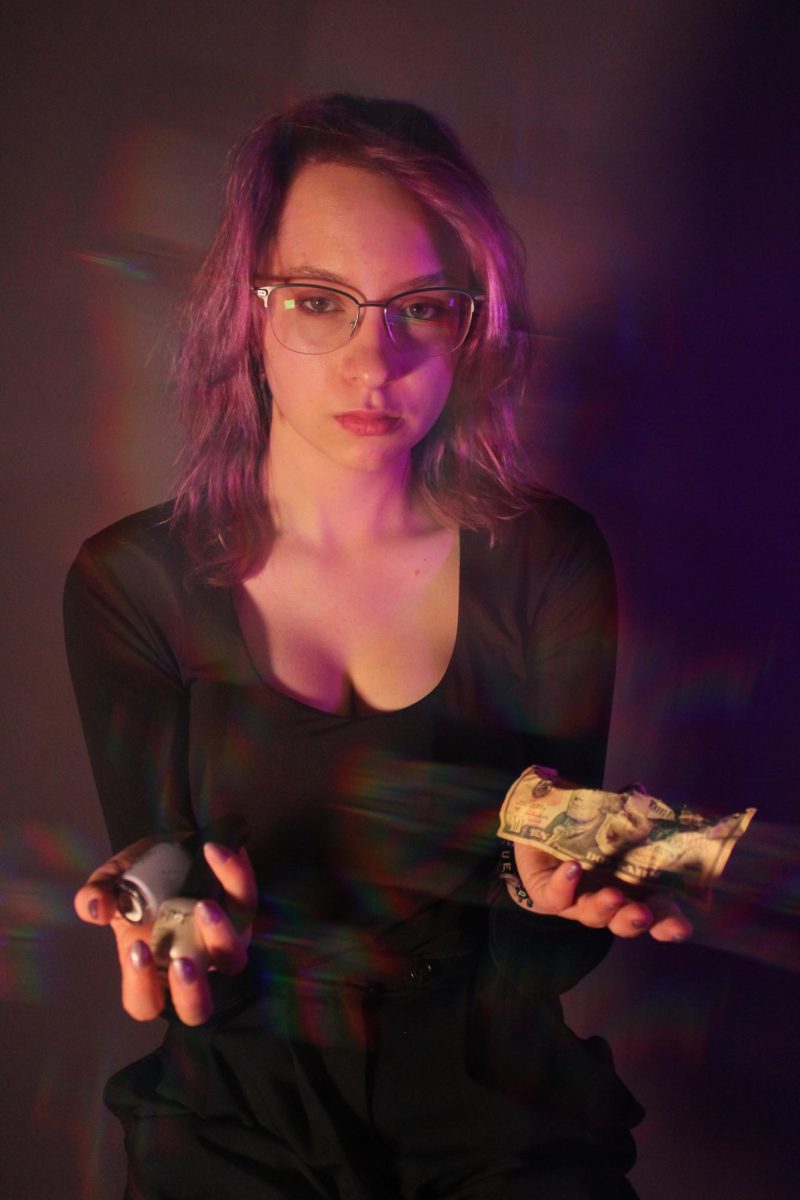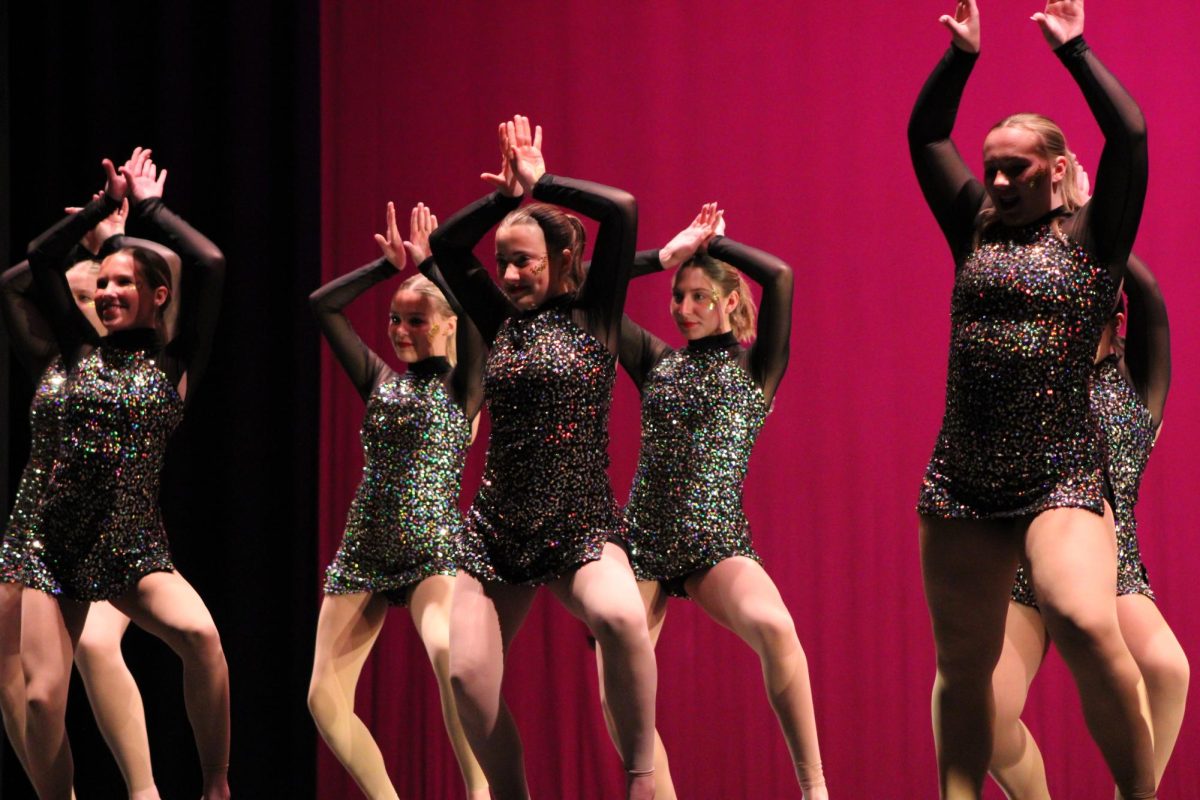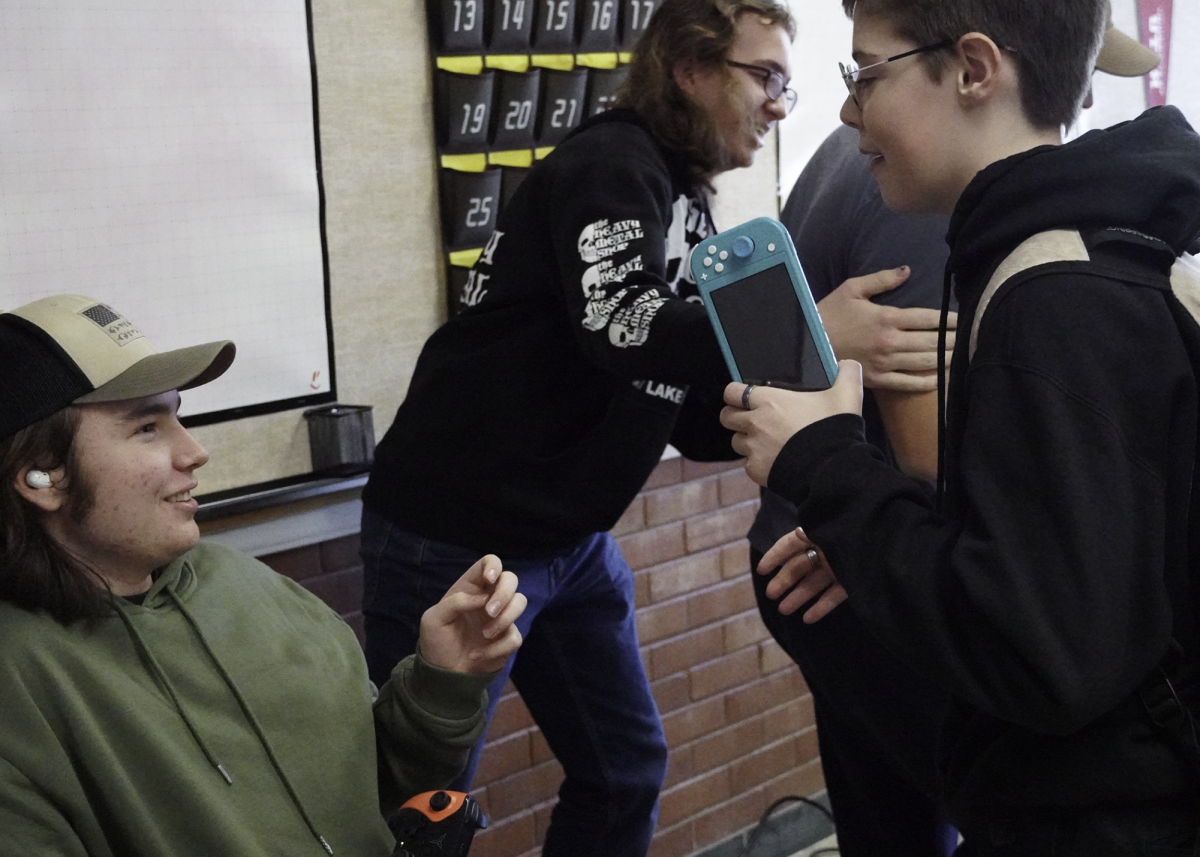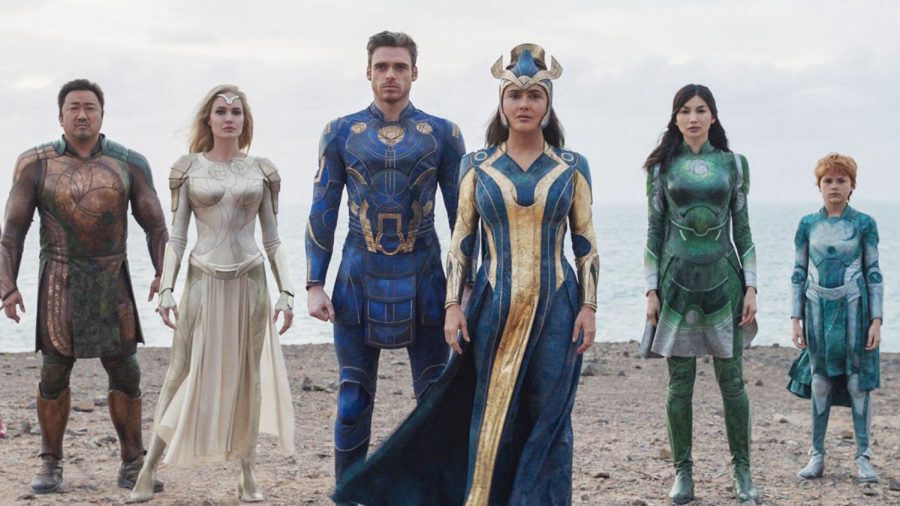Eternals Is Bold– For Marvel
November 15, 2021
Rating: ![]()
After Chloe Zhao’s monumental Oscar win for her indie film Nomadland, skepticism came from both sides about her next project — Marvel’s Eternals. While fans of the MCU (Marvel Cinematic Universe) worried about her inexperience in the action movie genre, fans who knew her from projects like Nomadland and Songs My Brother Taught Me criticised her choice to join one of the most expensive mainstream franchises since Star Wars.
The movie came under further controversy for its introduction of Marvel’s first gay superhero, and its diverse cast was called too “woke”. The movie debuted last week to largely negative reviews, for the long (almost three hour) runtime, complex story, and both “too Marvel” while “not Marvel enough”.
But ultimately, it’s this middleground that sets it apart.
The movie spans 7,000 years, focusing on the Eternals, a group of superpowered “demigods” created by Celestials to protect the galaxies from Deviants, creatures also born from Celestials who turned on their creators and ultimately became killing machines. This story is, even in terms of Marvel, massive, and Chloe Zhao tries her hardest to compact it into 160 minutes.
This is the largest problem that the movie faces– how could all of this story effectively fit into one movie while simultaneously introducing characters who will become a core part of the next phase of the MCU?
Developing these characters was where Eternals often found itself lacking. There was not enough time to give them more solid backgrounds, so the audience is left to fill in a lot of the gaps, especially about character relationships.
This is a job put largely on the shoulders of the main cast of 11 superheroes, and they carry that weight valiantly. It is obvious that all of the Eternals are very fleshed out, and one of the parts where the movie surpasses other installations in the MCU is in its character’s nuances. Where most MCU heroes feel like variations of each other, none of the characters seem too similar.
But while these characters feel real, they seem like strangers, and the movie does not have the time to spare with making us care about them. The stakes feel real, and the characters are likeable, but there is still a certain detachment, especially from their motivations.
One of the more impactful scenes in the movie comes when Bryan Tyree-Henry’s Phastos sees the aftermath of the bombing of Hiroshima, causing him to lose faith in humans. While the scene is powerful, we don’t know Phastos enough to truly understand the impact this has on him, or why. We have a loose understanding, but Phastos could be replaced by any other member of the Eternals and with a few tweaks to the script, the scene would hold up the same.
Similarly, Lia McHugh’s Sprite’s actions being motivated by her want to be human don’t hit as hard as they would if we knew her more, or saw more of her past during one of the many flashbacks.
The writing for the relationships the Eternals have with each other is also very inconsistent. While Thena and Gilgamesh, Druig and Makkari, and even Kingo and Karun are bright spots that constantly make sense to the audience, this cannot be said for the main couple.
Ikaris (Richard Madden) and Sersi (Gemma Chan) are not particularly unlikeable characters, but when together, it’s as though the movie stops dead. Madden and Chan have little to no chemistry, and the audience’s job of filling in those blanks becomes very hard when it comes to imagining why these two are in love, and why it affects their motivations even after thousands of years.
This becomes even more apparent because Chan and Kit Harrington (playing Dane Whitman, Sersi’s human boyfriend) actually have chemistry. The love triangle between Chan, Harrington, and Madden simply does not work when one of the couples seems to have just met — and it’s the one that have known each other for millenia.
The scenes between Ikaris and Sersi feel out of a different movie, which is a shame because the scenes set in the past are some of the movie’s best.
Going back to Babylon, Tenochtitlan, and even Mesopotamia, these scenes are where the movie won me over. Not only are they colorful, but they show us more of the connection between the Eternals and humanity, which is what the movie is about at its core. The flashbacks fit well with the current storyline, and they slowly piece together the backstory the main characters so desperately need.
While the movie mostly follows earthy tones, these scenes seem to bring the movie to life. The vibrant blue and green hanging gardens of Babylon contrasted by the cut to the intense red Celestial in the darkness of space stands out, the opening shot of the spaceship against the bright sun, even the long sequence of space exposition stand out in its truly memorable cinematography.
These flashbacks also feature the movies’ best fight scenes – excepting the end sequence with Makkari that is set in the present – mostly because it heavily features the severely underutilised Angelina Jolie (who seems meant to play the Goddess of War).
The storyline that ultimately gets the gang back together and sets the plot in motion may not have been as interesting to me as the flashbacks, but it is by no means boring. Eternals has very real stakes the whole time, and a mystery that unravels in several plot twists nearing the end.
If you can get through the inevitable Celestial exposition dump and the Sersikaris scenes, the movie is consistently captivating, managing the hard task of never becoming too tiring in its almost 3 hours of runtime.
Sure, the quips are there, but they are also 60% less quippy than other movies in the MCU; and while there is the signature choppy editing, there are also 20% more impressive sequences than most of its partners.
Ultimately, this is a Marvel movie at its heart. But it is also a Chloe Zhao production, and brings back a life to the MCU that is missing from so many of its carbon copy projects.


